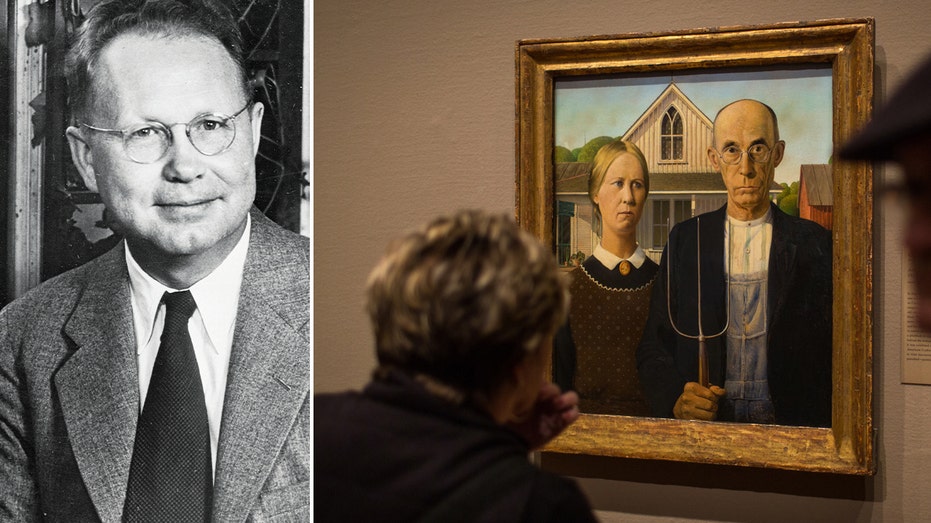
Iowa-born Grant Wood completed “American Gothic” in 1930. It became a famous piece that generated speculation from viewers about its subjects.
“American Gothic” is a famous piece of artwork by Iowa-born Grant Wood.
The painting by Wood depicts a man and a woman standing in front of a house.
The man, a farmer, wears overalls, with a pitchfork in his hand, looking straight at the viewer, where the woman’s head is turned slightly with a stern look on her face.
WHO WAS THE MONA LISA IN REAL LIFE? STORY BEHIND LEONARDO DA VINCI’S FAMOUS PAINTING
Though there is a clear age gap between the man and the woman in the painting, the relationship between them is unknown. The painting could depict a husband and wife, or a father and his daughter.
To create his famous work, Wood used his sister Nan, and his dentist, Dr. B.H. McKeeby, as models for the pair standing in front of the house in the painting, according to Britannica. The two posed separately as Wood worked on the painting.
The house in the background of the painting was inspired by one Wood saw in Eldon, Iowa, according to the Art Institute of Chicago’s website.
WHO IS BANKSY? THE ENGLAND-BASED STREET ARTIST’S WORK IS WELL-KNOWN, BUT HIS IDENTITY IS A MYSTERY
The house was built in the Carpenter Gothic style, one that was popular in the 1880s.
The painting was completed by Wood in 1930. Upon completion, Wood submitted it to the Art Institute of Chicago, where it was accepted into a major show, according to the art institute.
Wood won the Norman Wait Harris Bronze Award for his painting and won $300 as his prize.
The painting has remained at the Art Institute of Chicago to this day. When it was first put on display, it quickly grew in popularity.
Much of the public interest in the painting came from viewers trying to fill in the blanks of the story. Not much is known of the background story of the painting, so many have made their own guesses.
One popular belief of the painting is that it was meant to be a satirical take on the Midwest, according to the Art Institute of Chicago. Wood repeatedly rejected this throughout his life, according to Britannica.
The Art Institute of Chicago says on its website that Wood wanted to “convey a positive image of rural American values, offering a vision of reassurance at the beginning of the Great Depression.”



